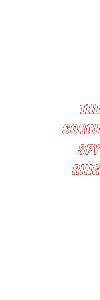|
|
|
|
|
 |
|
In the late summer of 1976, upon a fabricated invitation from the Sarajevo Micronet Research Institute (which my father obtained through his connections), Professor Venykov came to visit us. He arrived at five o'clock in the morning, having driven nonstop for sixteen hours, from Budapest to Sarajevo (only a sip of vodka, once in a while, to keep him awake). He avoided ringing the bell and cautiously knocked at our door, not quite being there. Father and Mother hesitantly left the bed (Mother taking Hanna in her arms), exchanging timorous glances, not being able to step out of their respective dreams. My father looked through the peephole ("Professor Venykov!"), opened the door and snatched him inside, looking down the hall before closing the door. They exchanged exclamations for a while (Father: "Professor Venykov!" Venykov: "Ay, moy Pyotr! Moy Pyotr!") then my father pointed toward my mother and me, making a motion with his hands as if opening the door behind which we were hidden ("Molodyets, Pyotr! Molodyets!"). Venykov had a pear-shaped body on the top of which there was a bald head (with a wart, like a miniature knob, on his forehead). His eyes were tired -- red cracks were rushing toward turquoise irises. Behind the smell-screen of sweat, onion, and vodka, I could still discern the oily odor of my toys. Venykov had a bath and shaved, but wore the same shirt as before (a white shirt with a pear-pattern, including leaves on the stalks). We had breakfast -- Venykov enthusiastically ate away a heap of bananas (Mother informing me, by a weighty glance, that bananas are not to be touched, except by Venykov), entirely ignoring the boiled eggs and sausage. "It's hard to come across bananas in Leningrad," my father translated Venykov's banana-peeling remark. After the breakfast, Venykov opened one of his (two) suitcases and pulled out, one by one, a throng of rotund matyoshky (we already had dozens on a remote shelf). Then he put a bottle (Stolichnaya), wrapped in a sheet of Literaturnaya Gazeta, in my father's hands. As my father was peeling the bottle, Venykov was dismantling matyoshky, echoing each other, all facing different directions, as if blind."Nuh!" Venykov said, touching the head of the largest matyoshka. "Nuh!" That night we all watched Brigadoon on TV (Venykov mumbling, "Duraky!") Despite my father's protests, he went to sleep in his car -- a Volga resembling a gigantic black cockroach, parked in front of our apartment building. "Why doesn't he sleep here?" I asked. "He feels uncomfortable in a foreign country," Father said. "He's afraid of being treated as someone other than himself." I had been more or less convinced that my father was a spy, and I somehow learned to live with it. I could still catch a shadow passing over his face -- a shadow of something that he had been doing and nobody was supposed to know about. He was still making phone calls in Russian, and the film multiplied. Venykov delivered to him an envelope, and he locked it in the lower drawer of his desk. The conversations they had in Russian, behind the bedroom door, or walking ahead of my mother and me, never sounded like conversations -- rather like lectures or briefings. I couldn't, however, make myself believe that Venykov was a spy -- not once I saw him peeling a banana (his gaze following the descent of the peel) or devouring a baklava, or humming with Julie Andrews and making his hand dance in rhythm, while watching The Sound of Music. I figured that he could be a benign cover or just a naive courier. The Venykov weeks passed uneventfully: he was playing chess with my father (Mother: "What's the score?" Father: "One thirty-one -- one twenty-seven."); visiting the mountains around Sarajevo; buying cheap Italian jeans from smugglers for his girls (a smuggler to his accomplice: "Get me size thirty for Brezhnev!"); going to movies (You Only Live Twice, From Russia with Love, True Stories VI); talking to my father behind the closed doors. We'd watch his Volga, before going to sleep, seeing flashes of flesh as he was putting on his crimson pajamas. Near the end of the third week, at the end of the day that included a movie (Arabian Nights), a dinner (Bosnian cuisine) and plenty of delectable Turkish coffee, Venykov agreed to sleep in my room. Lying between my parents (my sister in her crib), I could hear the hum of Venykov's snoring, occasionally interrupted by the smacking of his lips. Mother: "He's not going to stay forever, is he?" Father: "He's got to go back. His wife and children are there." Me: "Why can't they come here?" Father: "They just can't." The following day, Venykov packed up before any of us got up (although my sister bawled pitilessly, alarming us, I suppose), had a quick breakfast with us, then kissed my forehead, shook his index finger with my sister, hugged my mother and father (slapping his back dramatically), turned on the cockroach-car and drove back to Leningrad. "He's home," announced my father two days later, after a brief phone conversation. In my room, Venykov left the scent of his newly purchased aftershave (Pitralon) and a crumpled brown sock under my bed. |
|
|
|
|
NEXT >>
|
|